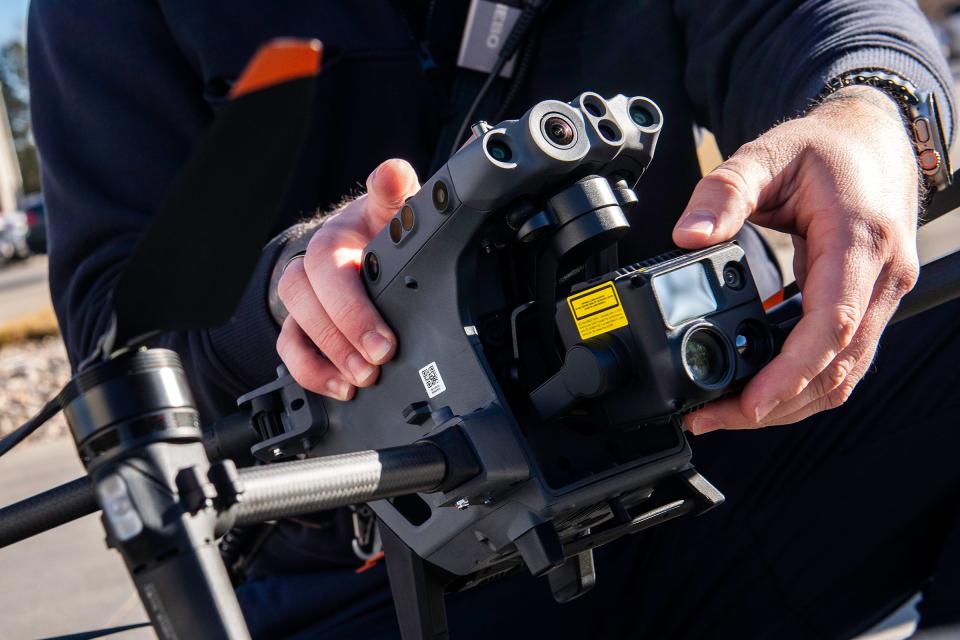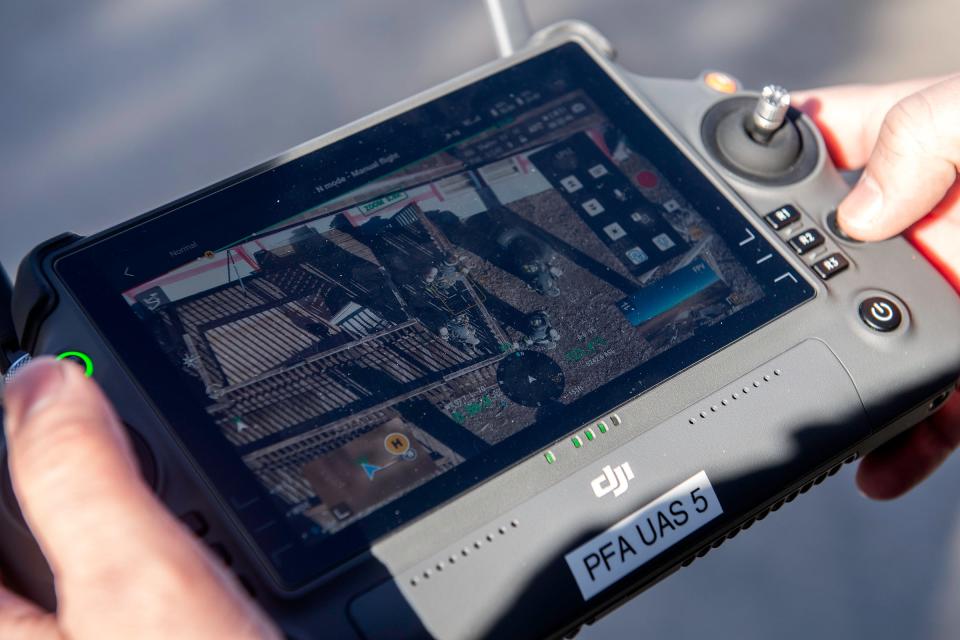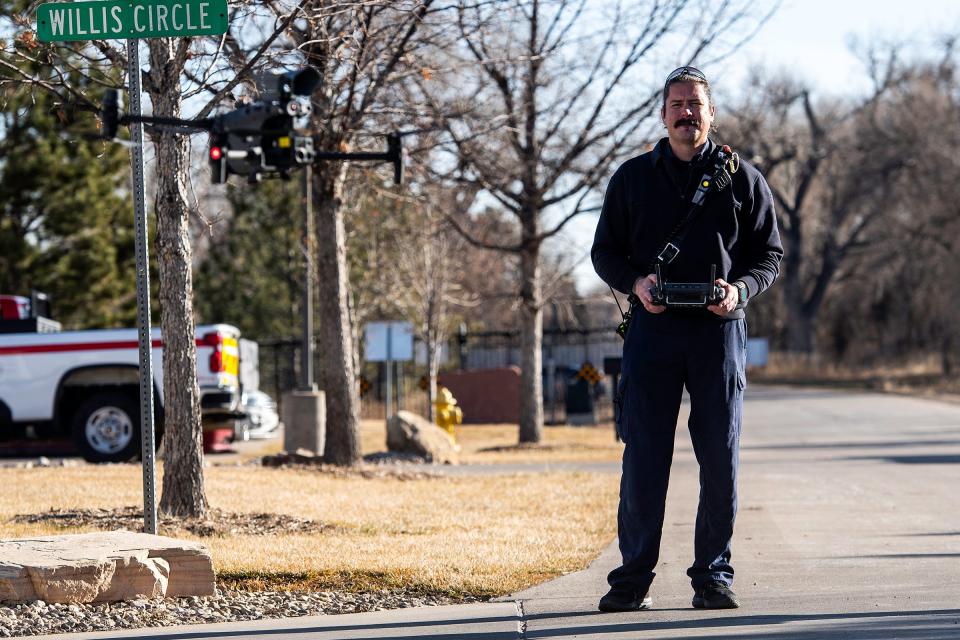'Great force multipliers': Poudre Fire Authority utilizing drones in more investigations
From fires to car crashes to missing people, Poudre Fire Authority is ramping up its use of a high-tech tool to assist in investigations: drones.
Poudre Fire Authority's drone team formed nine years ago and has doubled in size and budget in the last year, giving firefighters more access to the technology in emergency investigations.
The department now has five drones and an annual budget of $15,000, spokesperson Annie Bierbower said. The 16-person team is spread out in the department and flew about 20 to 25 missions to assist with emergency situations last year.
It’s a lot of work to get certified to fly a drone, Capt. Andy Russel said, with the process similar to someone receiving their pilot’s license.

The team works with a variety of drones. Two of them are special operations drones, with enhanced capabilities to investigate swift-water search and rescues — like if someone falls out of their tube or kayak on the Poudre River — and search and rescue operations in mountainous areas, Russel said. The special operations drones are more durable and have more specialized flight and camera capabilities, allowing them to operate more effectively in difficult terrain. Those drones are stationed with the north and south battalions so they can more easily deploy citywide.
Even the smaller drones have capabilities that enhance search operations, including a thermal camera that is “able to go through different color spectrums to help spot lost hikers," PFA Drone Coordinator and Capt. Estaban Guzman said.
Guzman said they often use drones to scan swaths of the river or forest when searching for a missing person “so responders can get to you quicker.” The drones are equipped with megaphones to communicate with missing hikers to let them know rescuers are on their way.
Drones make searches more efficient, Guzman said. Instead of a lot of searchers combing through the woods on foot, a few members of the drone team can deploy a drone and identify where a person is located and pinpoint their exact GPS coordinates, leading rescuers straight to them.
"They've been great force multipliers,” Guzman said of the drones.
Drones have also saved first responders time in responding to calls, particularly in the Horestooth area, Guzman said. Once, PFA had calls come in about an orange glow near Horsetooth Rock. Instead of sending firefighters out to investigate on foot, Guzman said they deployed a drone from the city to survey the area and determine if crews needed to respond and, if so, exactly where a potential fire may be. The drone camera was able to show responders that the orange glow was just a flag someone had hung up, saving crews travel and hiking time to reach the scene on foot.

PFA has used drones to map wildfires’ size, growth and speed, helping firefighters better anticipate and respond, Guzman said. The more advanced drones create maps while they’re flying, similar to what you’d see in a video game, Guzman said, which gives responders “a real idea of what’s inside.”
PFA's growing drone team also deploys to assist Fort Collins Police Services in investigating serious car crashes or searching for missing people in town. The police department has its own drone team with 20 pilots from across the department including sworn officers and professional staff, spokesperson Brandon Barnes said. That team deploys drones for a variety of missions, including event security at Colorado State University football games and Taste of Fort Collins and in searches for armed and dangerous suspects, Barnes said, and it adheres to an internal policy to not randomly deploy its drones for general surveillance.
Guzman said PFA's drone team often helps Fort Collins police by merely launching a PFA drone and turning on the spotlight to help officers manage a SWAT situation or investigate a car crash through the night. PFA will also send drones in to get a closer look at hazmat situations with potentially dangerous chemicals, keeping first responders at a safe distance.
Guzman said the hope is to continue expanding the PFA drone program, including purchasing another high-caliber drone in the next year.

This article originally appeared on Fort Collins Coloradoan: How Poudre Fire Authority uses drones in search and rescue, fire cases
